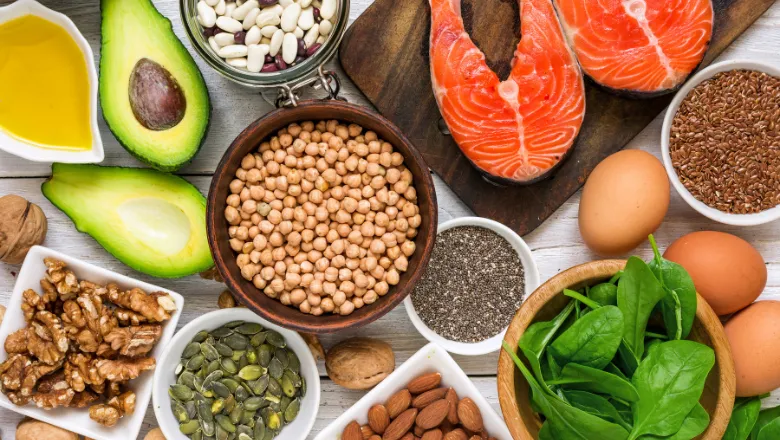Iron deficiency is a widespread public health problem in the UK, especially in women and children. The recommended amount of dietary iron intake for healthy people in the UK is guided by DRVs. These values are based on the body’s need for iron and the proportion of iron from foods that is absorbed and used by the body – known as iron bioavailability.
Dr Jeannine Baumgartner, Lecturer in Nutritional Sciences at King’s and project lead.
04 June 2025
Researchers awarded NIHR funding to re-assess UK dietary reference values for iron
Researchers from King’s College London and the University of East Anglia, Norwich, have been awarded a £500,000 grant from the National Institute for Health and Care Research (NIHR) for a project that will inform the re-assessment of current UK dietary reference values (DRVs) for iron.

The two-year project will be led by Dr Jeannine Baumgartner from the Department of Nutritional Sciences at King’s, alongside co-leads Dr Yemisi Latunde-Dada and Dr Karen O’Callaghan from the same Department.
Iron is an essential nutrient for human health that is needed for red blood cell production and for supporting growth and development. The project aims to synthesise existing evidence and analyse national data on dietary iron intake and status to inform updated recommendations on iron intake for different population groups across the UK.
The existing recommendations for dietary iron intake were established over thirty years ago. Since then, our understanding of how we absorb and use iron from our food has improved and dietary patterns in the UK have changed. The foods people in the UK eat have also become more diverse, including a move towards more plant-based foods.
This is important because iron bioavailability varies depending on the type of foods we eat, for example meat-based compared to plant-based foods. This means that current DRVs for iron may not meet the needs of everyone in the UK.
Dr Yemisi Latunde-Dada, Senior Lecturer in the Department of Nutritional Sciences and project co-lead.
The King’s researchers will work closely with Professor Sue Fairweather-Tait, Dr Lee Hooper and Dr Jack Dainty from the University of East Anglia, and Emeritus Professor Peter Aggett, a paediatrician and iron expert. The research will also be supported by an advisory group and an independent Patient and Public Involvement and Engagement (PPIE) group, ensuring the findings are relevant to and benefit the wider public.
“There is a disparity between recommended iron intakes and the prevalence of iron deficiency. This has led the UK Scientific Advisory Committee on Nutrition (SACN) to ask ‘Are current iron DRVs too high?’ Our work will help to generate evidence on iron bioavailability of diets consumed in the UK which is needed to derive the DRVs,” says Professor Sue Fairweather-Tait, nutrition expert from the University of East Anglia, Chair of the UK Nutrition and Health Claims Committee (UKNHCC) and project co-lead.
The project will involve detailed modelling using nationally representative data to estimate iron bioavailability. The modelling work will be informed and complemented by reviews of evidence to better understand iron bioavailability from different diets, and iron requirements in children and young people at different stages of growth.
This project is incredibly exciting, as the findings will be used by SACN to advise the UK Government on how much iron is needed by different groups of people in the UK. This could lead to updated dietary recommendations, potentially improving the health of people across the UK,
Dr Karen O’Callaghan, Lecturer in the Department of Nutritional Sciences at King’s and project co-lead.



